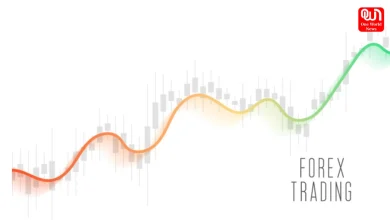How to Use CPR for Intraday Trading?
CPR for Intraday Trading is often used by seasoned market players to help them understand the trend and sentiments of the market. See how it can help with trading!
Want to make money in the stock market? Understand how CPR for Intraday Trading works!
The Central Pivot Range (CPR) is one of the most used technical analysis indicators in trading to determine resistance and support levels. It is also known as pivot range or pivot zone. The use of CPR for Intraday Trading is a great strategy that helps traders navigate the potential entry and exit points to trade in the market and make informed decisions.
In this article, we’ve mentioned almost everything about the CPR indicator and how to use it in your trades. Without any delay, let’s begin the article and understand the mechanisms better.
What is the Central Pivot Range Indicator (CPR) in Trading?
The Central Pivot Range Indicator (CPR) is a well-known tool used in technical analysis to determine the underlying market’s potential support and resistance levels. It works over the concept of pivots, which are key price levels and a training point for market trends.
The CPR indicator records the previous trading day’s range, including high, low, and close, and helps in calculating three crucial levels: the central pivot point, the Top CPR or pivot (TC), and the Bottom pivot (BC).
To understand the CPR, you must understand certain fundamental concepts like candlestick patterns, trading charts, and resistance and support levels. You can effectively use the CPR to navigate the crucial price level breakthrough points. Plus, the support and resistance levels help you to pinpoint the lowest and highest potential stock prices.
Calculation of CPR (Central Pivot Range)
The Central Pivot Range (CPR) refers to an average price calculated using the previous trading day and applied to the current day. As it works over the previous data, it can not be changed or fixed in all timeframes. By analyzing all this data, CPR demonstrates three price levels, which are mentioned below.
- Central Pivot Point = Previous Day’s(Low + High + Close) / 3
- Top CPR Point (TC) = (BC – Pivot) + Pivot
- Bottom CPR Point (BC) = Previous Day’s (Low + High) / 2
How to Interpret the Central Pivot Range?
The Central Pivot Range refers to a dynamic framework that helps you to know the market sentiments and potential trends. This indicator helps you to determine whether the market follows a bullish or bearish trend.
If the CPR represents an ascending or rising trend, you should follow the bullish approach. In contrast, if CPR represents a downtrend, you can follow the bearish approach. To better cope with this strategy, you have to learn price action trading.
Below, we’ve mentioned certain points to help you understand and interpret the central pivot range.
- Virgin CPR
The CPR is considered a “virgin” when the stock price fails to cross the CPR lines. Simply put, if an asset doesn’t reach the range set by its CPR lines on the previous day, there is a 40% probability that the CPR range won’t be breached even the following day. Hence, the virgin CPR can act as a strong support or resistance depending upon the market conditions.
- Upward Trend in CPR Strategy
When the CPR levels make higher highs regularly, it is a clear indication that the underlying asset is in an uptrend. Thus, the overall trend is bullish, and traders should take long positions in the market to align with it.
- Downward Trend in CPR Strategy
Similarly, when the CPR levels regularly make lower lows, it is a clear indication that the underlying asset is in a downtrend. Thus, the overall trend is bearish, and traders should short the opportunities to align with it.
- Medium Trend in CPR Strategy
When the CPR consists of a medium range, neither too narrow nor too wide, it clearly indicates a neutral stance. Here, the stock may or may not represent a clear trend. Therefore, it simply showcases the market’s consolidation phase and lacks a strong directional bias.
To sum it up
CPR (Central Pivot Range) is mainly used to determine the bullish or bearish trend in the market and make appropriate trading decisions accordingly. You can understand many such concepts including learn option trading and its strategic application on Upsurge.club with its wide range of offerings on courses.
Like this post?
Register at One World News to never miss out on videos, celeb interviews, and best reads.








